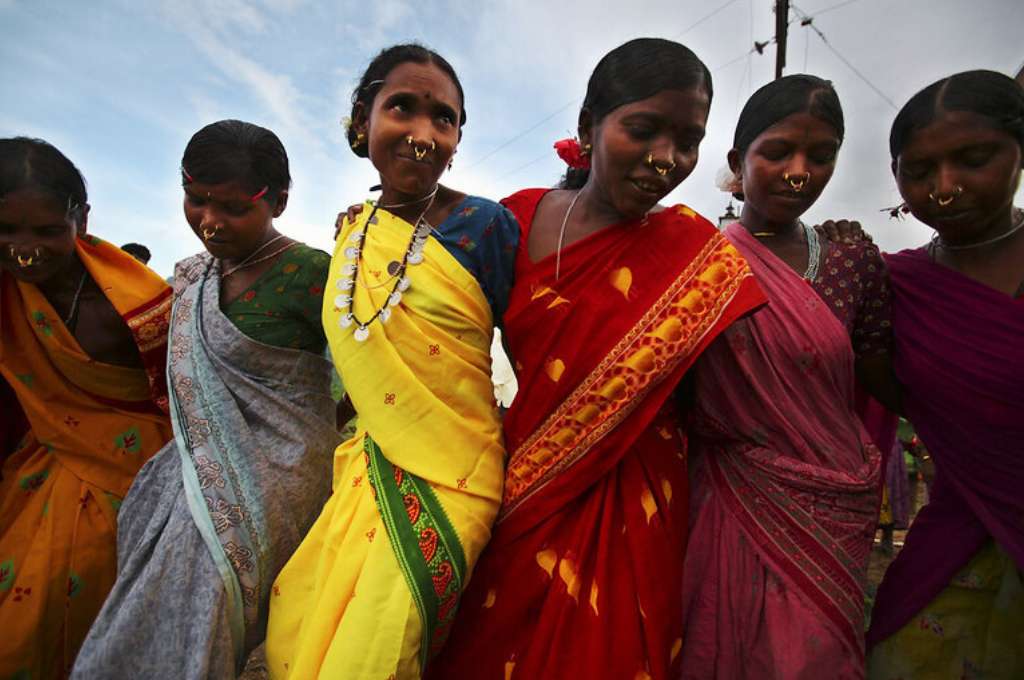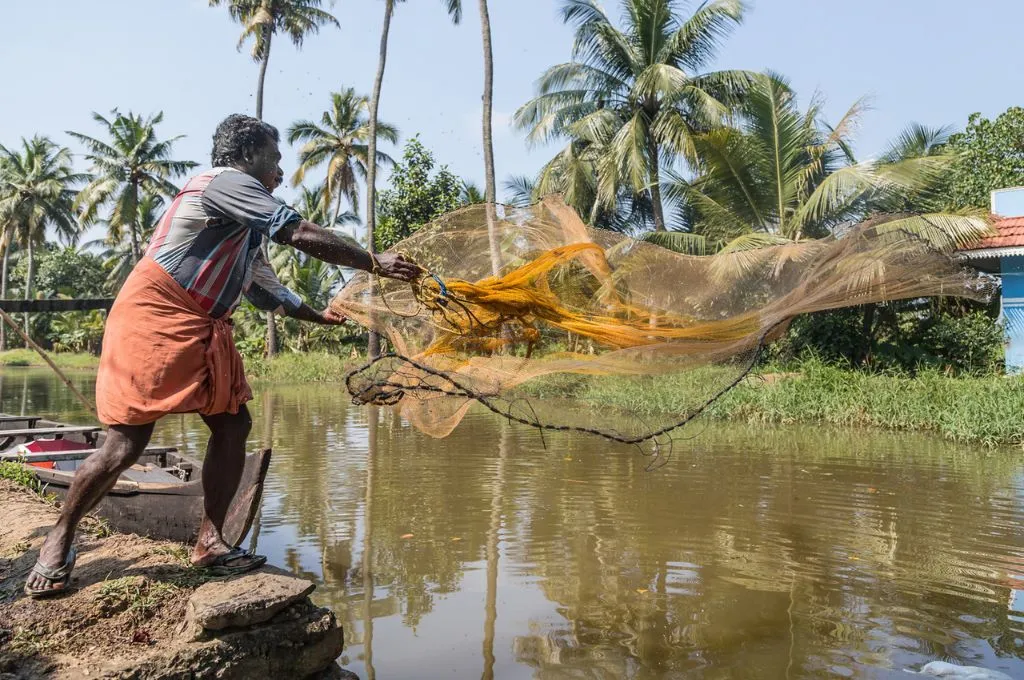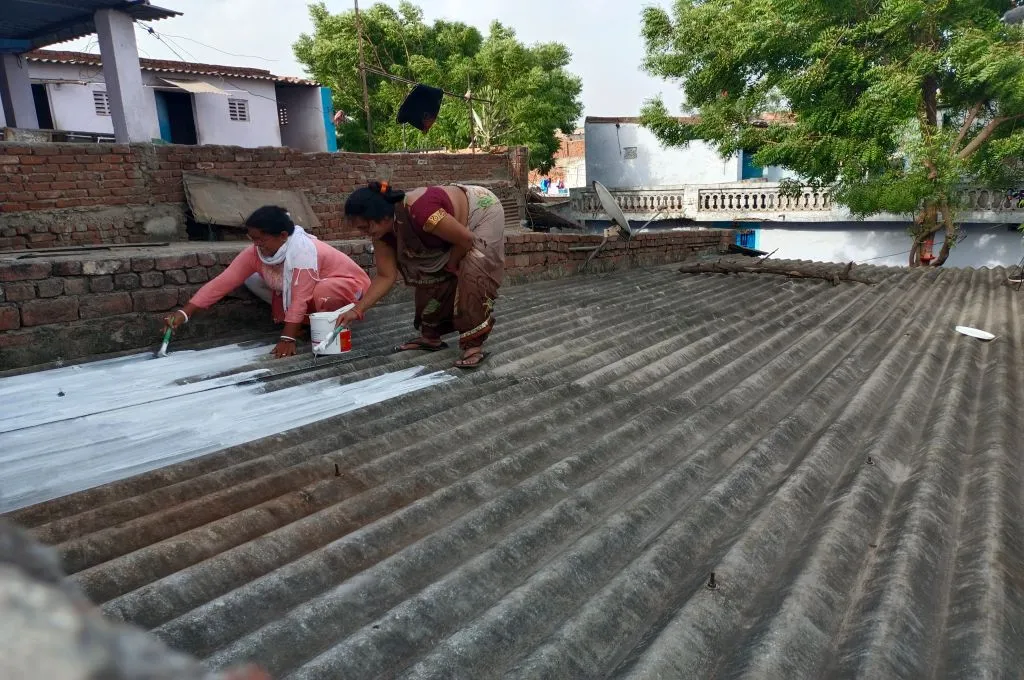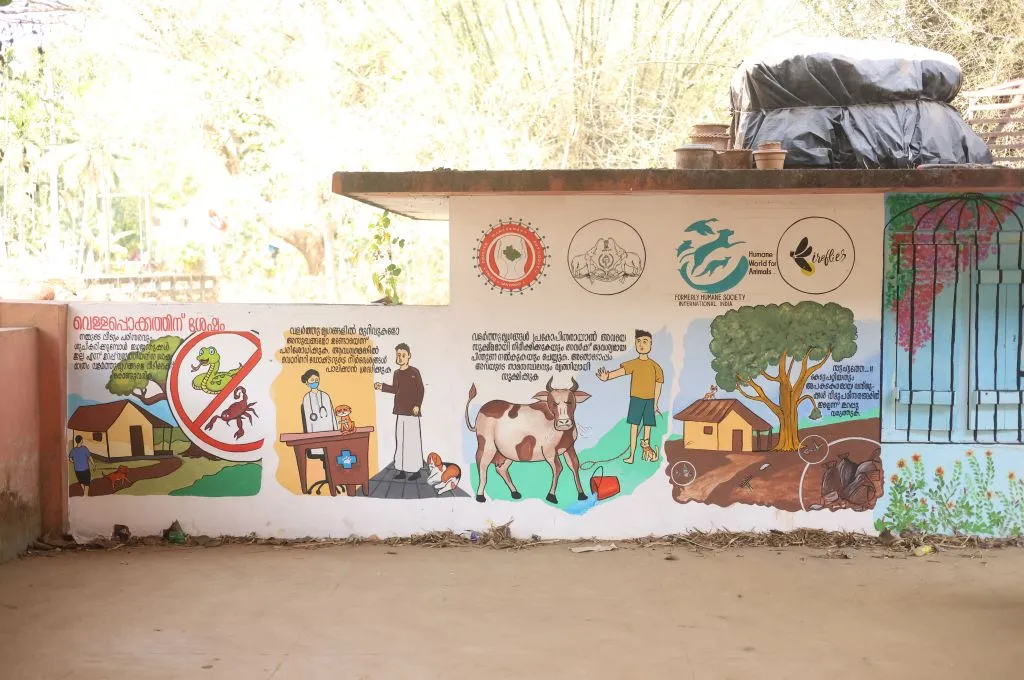The climate has never been more ripe for renewables in India, with the private sector leading the energy transition in the country. As of June 30, 2024, the installed capacity of renewable energy (RE) sources (solar, wind, small hydro power, biomass power, urban and industrial waste power) of private utilities was 143.91 GW, compared to the combined 4.16 GW of state and central power stations.
RE businesses play a crucial role in India’s efforts to reduce carbon emissions and drive economic growth. Supportive regulations, incentives, and funding have paved the way for the sector’s expansion. Over the past nine years, India’s non-fossil fuel capacity has grown by 396 percent, with investments in the sector reaching an estimated USD 9 billion last year alone.
However, while the sector has been rapidly expanding, there have been reports of adverse social and environmental impacts from RE projects. For instance, pastoralists of Sujanpura in Gujarat have lost their grazing grounds, while scheduled caste smallholders in Karnataka’s Pavagada have struggled to find compensatory jobs at the solar park.
According to researchers at Business and Human Rights Resource Centre (the Resource Centre), an organisation that works to advance human rights in business, companies that undertake projects without proper consideration of the rights of local communities and workers are likely to erode public trust. They are also prone to being embroiled in lengthy legal disputes, incurring penalties and fines, and risking project delays and closure. For instance, in four out of five cases tracked by the Resource Centre globally, plaintiffs sought a temporary or permanent closure of the project.
We need to recognise the impacts of RE on communities
As RE businesses gain momentum, we must ensure that profits don’t get the better of people and the planet. There is a need, therefore, to centre equity and justice in business models so that communities and ecologies can grow and thrive around these projects.
In addition to the impact on people, there are ecological impacts of RE projects.
One of the key areas to consider is altered land use. In many cases, commons, cropland, and forests that people have relied on for their sustenance and livelihoods have been taken over by solar parks and wind farms. In such instances, it is crucial that RE companies invest time, effort, and resources for clear communication with the affected communities; conduct fair and inclusive negotiations; and secure free, prior, and informed consent (FPIC). FPIC, enshrined in international law, is consent obtained from indigenous peoples for use of their land.
These measures will collectively ensure that local populations fully understand the terms of the agreement, and its impact on their lives and livelihoods.
In addition to the impact on people, there are ecological impacts of RE projects. These include loss of habitat and forest canopy, disruption of biodiversity, overextraction of water, and disturbed soil composition. Open natural ecosystems that include scrubland and deserts are particularly vulnerable to these impacts, located as they are in the hot, arid regions that solar parks favour. The Bhadla Solar Park in Rajasthan occupies such land.
Therefore, it is essential for any energy transition to not only function at social, ecological, and economic levels but also to do so equitably, anticipating and addressing these challenges.

There are models emerging that benefit both people and businesses
Fortunately, the RE sector has ample opportunity to develop healthy precedents for business. A growing body of case studies from around the world points to new, mutually beneficial models of RE development that can help both businesses and communities prosper.
At several sites, communities themselves have emerged as game changers, demanding equity, fairness, and justice in the way projects are planned and operated. Companies pledged to sustainability—and their own security—must proactively foster these values in their business.
To further encourage this, the Resource Centre has developed a set of shared principles for just energy transition that developers, buyers, and procurers can integrate into their businesses. The principles are shared prosperity, human rights and social protection, and fair negotiations. Each of these has been explained below.
1. Shared prosperity
Businesses can reduce systemic risk and build trust and stability with local communities if they embody models of shared prosperity in their operations and supply chains.
A shared prosperity model builds worker and community rights and invites communities to be a part of the process as co-owners of a project, allowing them to share in its benefits.
Indigenous groups such as the First Nations, Métis, and Inuit peoples are partners or beneficiaries of approximately 20 percent of all of Canada’s electricity generation.
An example of this benefit-sharing model can be seen in Canada. Over the last two decades, the number of RE projects with indigenous participation has grown substantially in the country. The nonprofit organisation Indigenous Clean Energy estimates that there are 1,700–2,100 small RE systems and 197 medium to large projects with indigenous leadership and partnership in the country. This partnership plays out in different ways: through sole ownership, where an indigenous community is the sole owner of an energy project; through co-ownership, where the community owns the project jointly with a company; and through financial benefits for the community.
Nearly half of these installations are driven by feed-in tariff measures that offer indigenous communities a pathway for clean energy participation. This pathway has been largely paved by Canada’s supportive regulatory environment, which through tax and tariff incentives encourages businesses to work closely with indigenous communities. It is, moreover, anchored in the UN guiding principles on business and human rights. Today, indigenous groups such as the First Nations, Métis, and Inuit peoples are partners or beneficiaries of approximately 20 percent of all of Canada’s electricity generation.
2. Human rights and social protection
Governments and companies have a duty of care to protect workers and communities from harm, ensuring they are shielded from the adverse impacts of industrial projects. This includes conducting rigorous due diligence to minimise risks to human rights and the environment. Central to this responsibility is the implementation of comprehensive social protection measures.
Social protection should encompass not only retraining workers and creating new, decent work but also providing financial security, healthcare, and other social safety nets to support individuals and communities through periods of transition and uncertainty. As we move towards RE, it is vital to avoid the pitfalls of the fossil fuel industry by establishing a new sector that prioritises human rights and provides strong social protection, ensuring that both workers and communities are supported and empowered throughout the energy transition.
3. Fair negotiations
Communities and workers should be present at the negotiating table. There should be inclusive community consultation with equal representation from class, caste, and gender groups. And there should be robust implementation of free prior and informed consent.
In April this year, 87 indigenous peoples’ representatives from 35 countries convened at the Conference on Indigenous Peoples and the Just Transition, in New York, to highlight the price they have had to pay for an energy system that deprives them of their land and rights, and denies them its economic benefits. (More than half of the world’s transitions minerals and metals and RE potential is located on indigenous peoples’ lands.) The conference concluded with a declaration that called for companies to negotiate fairly with host communities, and implement equitable benefit-sharing mechanisms in their business models by creating opportunities for co-ownership and co-equity.
The above models don’t yet exist in the RE sector in India, but consortiums like the Responsible Energy Initiative have been hard at work to promote the shared principles of just transition among stakeholders in industry, government, and civil society.
Building a rights-based ecosystem
Shared prosperity is the natural by-product of a rights-based regulatory environment that pledges to uphold the principles of equity and justice. Such an environment can be cultivated jointly by government, businesses, financiers, and civil society. Here are some actionable recommendations from the Resource Centre on what each of these influential stakeholder groups can do:
Government
- Cultivate a robust regulatory landscape for RE by enhancing enforcement and dispute resolution mechanisms, and by strengthening systems that provide access to remedy. There should be strict penalties for non-compliance. As primary duty bearer, it is the government’s job to make sure that an essential utility such as power is produced in a manner that prioritises people.
- Conduct regular audits and inspections to ensure that companies adhere with relevant laws and policies. This includes adherence to international treaties and principles to which India is a signatory, such as the UN DRIP (Declaration on the Rights of Indigenous Peoples).
- Hold international companies investing in India to the same standards of corporate accountability as in other countries.
- Enforce environmental impact assessments for RE projects, with penalties imposed on projects that don’t measure up.
- Strengthen mechanisms for community engagement by implementing the right to free, prior, and informed consent. Ensure that social impact assessments are conducted comprehensively, without bias, and speedily. Circumventing provisions of the LAAR Act poses a massive risk of exploitation to marginalised communities.
Businesses
- Assign clear board responsibility for and oversight of respect for human and environmental rights.
- Implement due diligence processes that safeguard human rights throughout the business cycle and supply chain. This includes providing remedy for harm, built on worker and community engagement.
- Adopt and effectively communicate support for good jobs and decent working conditions, co-benefits, inclusive remediation processes, and zero-tolerance policies for abuse of communities, workers, and human rights defenders.
- Respect and publicly report on inclusive consultations with communities and implementation of FPIC principles prior to taking investment and operational decisions. Ensure communities and workers are well advised for equal negotiation of these terms, and that these processes are accessible, culturally appropriate, safe, and effective.
- Develop decarbonisation and just transition plans to deliver good jobs and co-benefits in consultation with democratic representatives and rightsholders.
Investors
- Commit to rights-respecting investments. Undertake analysis consistent with the UN Guiding Principles for Business and Human Rights (UNGPs) and evaluate risks and impacts of investee companies on people and the planet, alongside financial materiality.
- Actively engage with investee companies. Adopt stewardship policies, and develop and implement plans to proactively prevent and mitigate human rights and environmental risks and related costly conflict, alongside reputational, legal, and regulatory risks.
Civil society organisations
- Gather data on human rights and environmental violations, analyse them, and raise awareness on issues. Use statistics and proof to substantiate negative impacts, and exert pressure on companies and governments to respond and act.
- Build capacity of workers and communities by sharing information on issues and educate people about their rights and how to advocate for them.
In its seminal judgement in April 2024, the Supreme Court underscored citizens’ right to a clean environment and their right against the adverse effects of climate change. It called for a holistic approach that achieved both objectives: biodiversity conservation and clean energy production.
The growth of the renewables sector needn’t be an either–or game; it doesn’t have to be clean energy at the cost of the environment or communities. There are ways to securing both ends; all businesses need is the will.
With inputs from Anithra Varia, South Asia researcher and representative, Business and Human Rights Resource Centre, and Annie S. Khan, Asia regional manager, Business and Human Rights Resource Centre.
—






